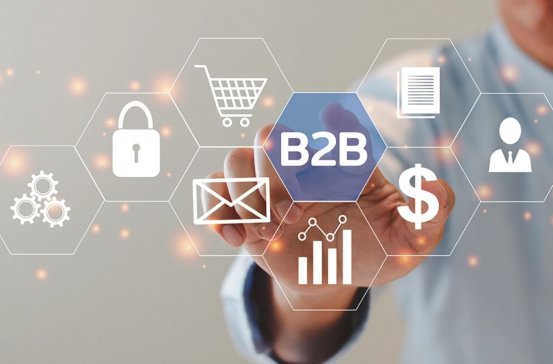B2B e-commerce is revolutionizing traditional business relationships by using digital platforms to streamline transactions and increase operational efficiency. It allows companies to connect, negotiate, and fulfill orders seamlessly across geographic boundaries. This digital framework delivers advanced tools for managing supply chains, improving procurement processes, and strengthening collaboration. As industries continue to evolve, B2B e-commerce has become a cornerstone of innovation, efficiency, and sustainable growth.

Defining B2B eCommerce
B2B eCommerce refers to the digital exchange of goods and services between companies. Unlike consumer-focused platforms, B2B systems handle higher order volumes, complex pricing arrangements, and extended sales cycles. Modern B2B platforms now include customizable storefronts, real-time integrations with ERP systems, and dedicated customer portals. The digital transformation of business-to-business transactions has introduced faster scalability, improved efficiency, and measurable cost reductions for organizations worldwide.
Market Trends Influencing the Industry
The B2B eCommerce sector continues to evolve through technological advancements and changing buyer expectations. Digital adoption remains central as businesses pursue greater transparency, automation, and operational precision. Key trends driving growth include:
The growing reliance on mobile-ready platforms that enable order placement and tracking on any device.
The integration of AI and machine learning to enhance personalization, automate customer service, and improve product recommendations.
The widespread shift toward cloud-based systems that support flexible scaling and global access.
Deeper synchronization with ERP, CRM, and logistics systems to maintain real-time visibility across operations.
These developments mark a shift toward intelligent, data-centric models that redefine how businesses manage trade relationships.
Core Components of Effective B2B eCommerce Platforms
High-performing B2B eCommerce systems share several key features designed to handle the complexity of professional transactions:
Flexible Pricing Structures: Platforms accommodate volume discounts, contract-based rates, and customized pricing tiers to fit varied customer requirements.
Tailored Product Catalogs: Systems enable businesses to create personalized catalogs for each client segment or contract.
Automated Order Processing: Recurring orders, quotation automation, and bulk purchasing functions simplify operations and minimize human error.
Seamless System Integration: Smooth connection with ERP, CRM, and accounting tools ensures continuous data flow and operational accuracy.
Advanced Security Protocols: Strong encryption, multi-factor authentication, and strict access controls protect business data and financial information.
Strategies for Maximizing Growth and Efficiency
Thriving in the digital B2B space requires structured strategies that align technology, customer experience, and data-driven planning:
Developing a Digital Roadmap: Establish a clear plan to enhance online experiences, automate key workflows, and integrate new technologies.
Prioritizing User Experience: Intuitive interface design enhances adoption, reduces friction, and increases overall satisfaction.
Utilizing Analytics Tools: Data analysis reveals customer trends, buying cycles, and pricing opportunities, enabling more informed decisions.
Personalizing Buyer Journeys: Customized dashboards, offers, and recommendations help strengthen long-term business relationships.
Building Omnichannel Presence: Consistent accessibility across devices and channels—mobile, desktop, and voice—ensures a seamless buyer experience.
Technology Integration for Streamlined Operations
Efficient B2B eCommerce relies on the seamless alignment of digital tools and business systems. Key technological enablers include:
API Connectivity: Real-time API frameworks allow systems to communicate smoothly, maintaining data consistency and reducing manual entry.
Cloud Infrastructure: Cloud hosting supports scalability and business continuity, ensuring reliable performance during high-demand periods.
Mobile-First and Progressive Web Design: Optimized mobile experiences increase engagement and convenience for on-the-go business users.
Fintech-Enabled Payment Systems: Secure, diverse payment options simplify global transactions and enhance financial transparency.
Additional technologies such as automated inventory management, AI chat support, and AR-based product visualization further enrich modern B2B commerce.
Security, Compliance, and Data Management
Protecting sensitive business information is critical in digital trade. Reliable B2B systems employ strict standards for compliance, integrity, and cybersecurity:
Compliance with Regulations: Adherence to frameworks like GDPR and CCPA ensures data privacy and trust.
Layered Defense Mechanisms: Encryption, secure servers, and continuous monitoring protect platforms from cyber risks.
Proactive Auditing: Regular penetration testing and auditing help identify weaknesses and ensure consistent protection.
Resilient Backup Systems: Automated data backups and recovery solutions maintain business continuity during disruptions.
The Future of B2B eCommerce
As technology evolves, B2B eCommerce will continue to reshape how organizations conduct trade. Anticipated developments include:
Blockchain Integration: Immutable ledgers will enhance transactional transparency and security.
IoT Adoption: Real-time tracking and inventory automation will redefine supply chain management.
Voice-Based Commerce: Voice-activated systems may soon simplify procurement in operational environments.
Predictive Analytics: Advanced forecasting tools will help businesses anticipate market trends and optimize inventory.
Sustainability Integration: Companies are expected to adopt greener practices in sourcing, logistics, and packaging to meet environmental goals.
Conclusion
B2B eCommerce is entering a new phase of digital maturity, characterized by innovation, data-driven processes, and global connectivity. Companies that embrace integrated technologies, prioritize user experience, and maintain high security standards can achieve greater agility and profitability. As emerging tools like blockchain, IoT, and predictive analytics gain traction, the B2B landscape will continue evolving—offering businesses more efficient, transparent, and sustainable ways to operate and collaborate.
